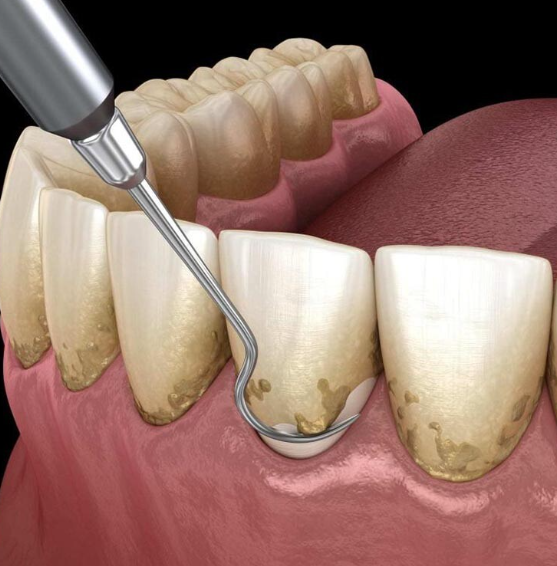
Regular teeth cleanings every six months are important for maintaining good oral health. Here's why:
Plaque and Tartar Removal: Over time, plaque, a sticky film of bacteria, can accumulate on your teeth. If not removed through regular brushing and flossing, it can harden into tartar, which can only be removed by a dental professional. Regular cleanings help prevent the buildup of tartar and the associated problems, such as cavities and gum disease.
Prevention of Cavities: Professional cleanings help remove plaque and tartar, which are major contributors to tooth decay (cavities). By having your teeth cleaned regularly, you reduce the risk of developing cavities.
Gum Disease Prevention: Gum disease, also known as periodontal disease, can range from mild gingivitis to severe periodontitis. Regular cleanings can help prevent or detect gum disease in its early stages. Treating gum disease in its early stages is crucial because advanced gum disease can lead to tooth loss and other health issues.
Early Detection of Oral Health Issues: Dental cleanings are also an opportunity for your dentist or dental hygienist to check for any signs of oral health problems. They can identify issues like oral cancer, cavities, gum disease, and other dental conditions early, making treatment more effective and less invasive.
Oral Hygiene Education: Dental professionals can provide you with valuable information and guidance on maintaining good oral hygiene at home. They can recommend the best techniques for brushing and flossing, as well as suggest suitable dental products for your specific needs.
Fresh Breath: Regular cleanings can help improve your breath by removing the bacteria that cause bad breath.
Aesthetic Benefits: Cleanings can help remove surface stains and improve the appearance of your teeth, leading to a brighter smile.
While a six-month interval is a general guideline for most people, the frequency of dental cleanings may vary depending on an individual's oral health needs. Some people with certain conditions or risk factors may need more frequent cleanings, while others with exceptional oral health might require less frequent cleanings. It's essential to discuss the ideal cleaning schedule with your dentist, as they can tailor their recommendations to your specific situation. Overall, regular teeth cleanings play a vital role in maintaining good oral health and preventing dental issues.
Accumulation of Plaque and Tartar: Plaque, a sticky film of bacteria, continuously forms on your teeth. Without regular cleaning, it can accumulate and harden into tartar (calculus). Tartar is more challenging to remove and can lead to dental issues.
Tooth Decay: Plaque and tartar can contribute to tooth decay (cavities) by producing acid that erodes tooth enamel. The longer these substances remain on your teeth, the higher the risk of cavities.
Gum Disease: Untreated plaque and tartar can irritate the gums and lead to gum disease. In the early stages, this is known as gingivitis and is characterized by red, swollen, and bleeding gums. Left untreated, it can progress to more severe forms of gum disease (periodontitis), which can result in gum recession, tooth mobility, and even tooth loss.
Halitosis (Bad Breath): Poor oral hygiene can lead to bad breath, as the bacteria in your mouth produce unpleasant odors when they break down food particles and dead cells.
Tooth Sensitivity: The buildup of plaque and tartar can expose the sensitive parts of your teeth, leading to increased tooth sensitivity, especially to hot or cold temperatures.
Tooth Discoloration: Neglecting regular cleanings can result in the accumulation of stains on your teeth, causing discoloration and a less attractive smile.
Tooth Loss: Advanced gum disease, left untreated, can lead to tooth loss. Once the supporting structures of the teeth are compromised, tooth mobility and eventual loss can occur.
Increased Dental Treatment Costs: Delaying or avoiding regular cleanings can lead to the need for more extensive and costly dental treatments, such as fillings, root canals, or extractions.
Systemic Health Implications: Emerging research suggests a connection between oral health and overall health. Poor oral health, particularly in cases of severe gum disease, has been associated with systemic health issues like cardiovascular disease, diabetes, and respiratory problems.
Pain and Discomfort: Untreated dental problems can cause pain and discomfort. Ignoring dental pain can lead to worsening issues and more significant pain over time.